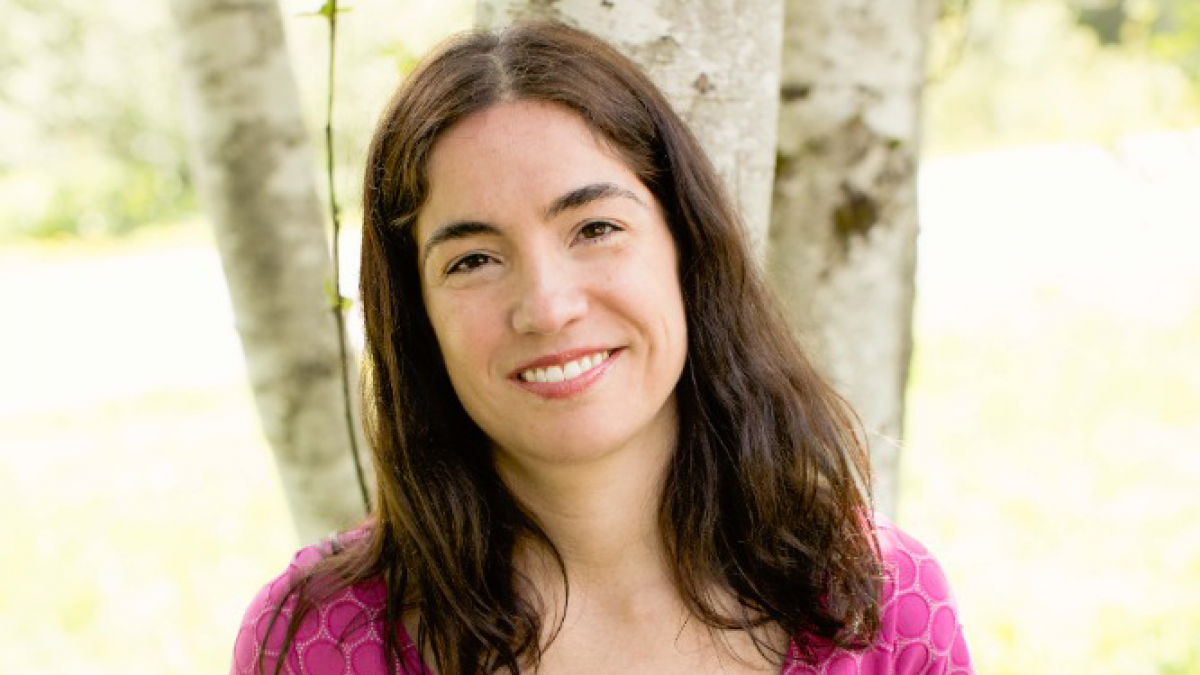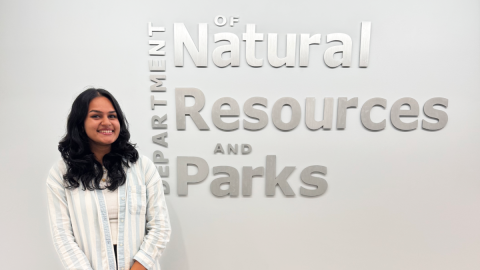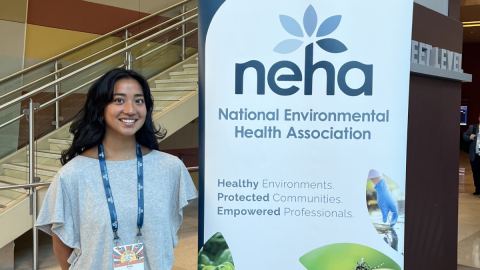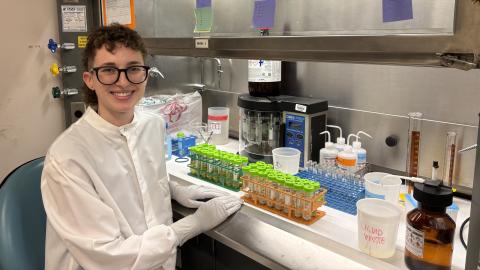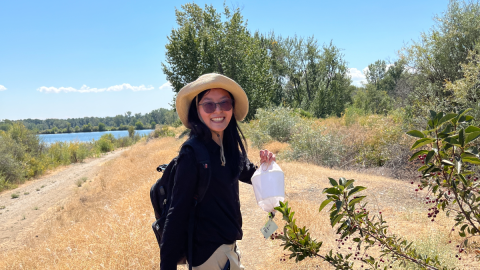A bucket-list dream to take an Alaskan cruise turned into a lifetime of public health service in Alaska for Denise Koch, an alumna of the UW Department of Environmental & Occupational Health Sciences (DEOHS).
As director of spill prevention and response for the Alaska Department of Environmental Conservation, Koch was responsible for implementing the nation’s first regulatory program, passed by voter initiative, for cruise ship wastewater and air pollution emissions, navigating competing interests to develop a program that achieved the initiative’s goals.
Many cruise ships in Alaska’s waters now use the most advanced wastewater treatment equipment in the world.
Today, Koch is responsible for providing clean drinking water and wastewater treatment, among other duties, as the deputy director of Engineering and Public Works for the City and Borough of Juneau, Alaska.
In 2020, Koch was one of five DEOHS alumnae recognized as one of the UW School of Public Health’s 50 Changemakers of Public Health awards.
Bitten by the “public health bug”
Koch obtained her MS degree in Environmental Public Health from DEOHS in 1999. However, she didn’t always know that she wanted to work in public health.
After graduating from the University of Virginia with a degree in Environmental Science, she began working as a lab technician in a cancer research lab at Johns Hopkins University (JHU) with the idea of pursuing a career in research.
She was surrounded by world-class scientists and cutting-edge research. Nevertheless, the thing that caught her attention most was the large amount of garbage generated by the lab.
Concerned about the waste, Koch found herself attending public health seminars at the JHU School of Public Health. It didn’t take too long before Denise had fully succumbed to the “public health bug” and began her degree program at the UW.
Applying science in the real world
Koch gravitated toward environmental health due to the breadth and versatility of the program. Being able to learn a little bit about a broad number of concerns, including wastewater surveillance and drinking water quality, gave her knowledge and expertise that continues to serve her well in her career today.
Koch said earning her master’s degree prepared her to delve deeply into environmental health issues.
Her research thesis on pesticide exposure in children helped her learn about important concepts such as exposure assessment, risk assessment and risk communication. She has applied the science in her work—for example, assessing chemical exposures in groundwater and communicating with the public about potential health effects, especially for the many Alaskans who get their drinking water from wells.
Balancing competing viewpoints
Koch’s first job in Alaska was regulating cruise ships and the environmental impacts of discharging wastewater. It was a controversial area as cruise ship travel to Alaska was exploding.
Through her role, Denise worked to balance many different viewpoints from the cruise industry, the US Coast Guard and environmental activists. From there, regulations for cruise ship wastewater and air pollution emissions were born.
Today, Koch spends her days working with utilities in Juneau, Alaska, to provide wastewater and drinking water services as well as working with the public transportation system and dealing with tasks related to COVID-19, such as organizing public vaccine clinics.
In her free time, she enjoys the abundance of outdoor opportunities Alaska provides, including biking and boating with her husband, daughters and dogs.
To students going into the environmental public health field, Koch recommends completing public health internships and learning how to translate classroom learning into real-world applications.
Koch never took that bucket-list Alaskan cruise. But the work she has done has changed the course of cruise ship wastewater regulation in Alaska.
